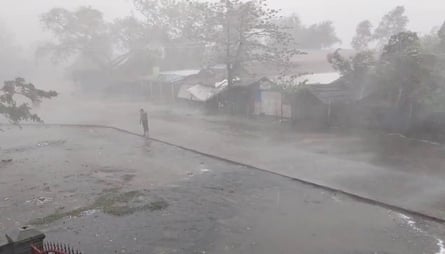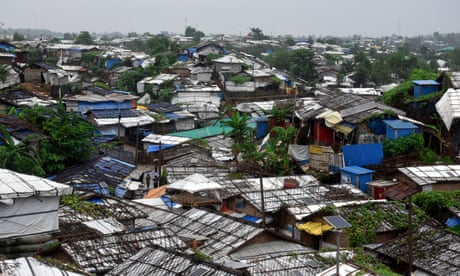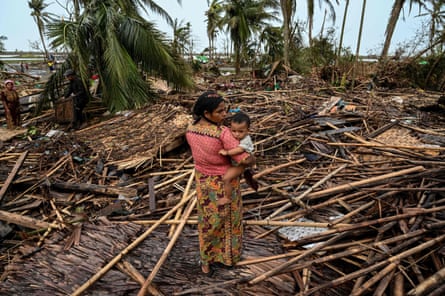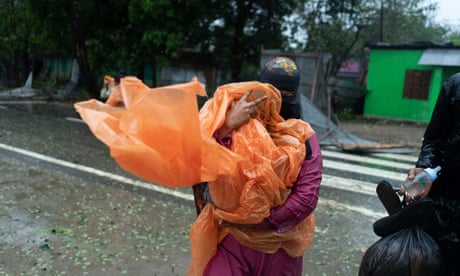Last month I was at Kutupalong refugee camp in Bangladesh as part of my yearly visits to the Rohingya children's education & vocational training programs that I run through a registered charity. During my visit I saw many kids playing and running around in narrow unkempt alleys between densely crowded shelters. I got to know a few kids by their names: Kulsum, 6, Jannatara, 7, and Nurhashim, 6. Their smiles were innocent and their laughter simply oblivious. I can still see them when I close my eyes.
But what if I closed my eyes and I saw them bombed to death all of a sudden? Alas, such unspeakable horror was the eventuality of many Palestinian children in Jabalia and many other refugee camps…
We, the Rohingya have been chased from our homelands through a series of massacres and Burmese military campaigns since 1978. Our villages have been exterminated and wiped out of all maps. People who lived in my parents' and grandparents' villages were forced out by government authorities to make space for settler colonies called "Nga ta la". Those of us who owned lands for generations became homeless overnight. Many had no choice but to resort to Internally Displaced Persons camps a few kilometers from their own villages inside Arakan. We became refugees in our own homelands.
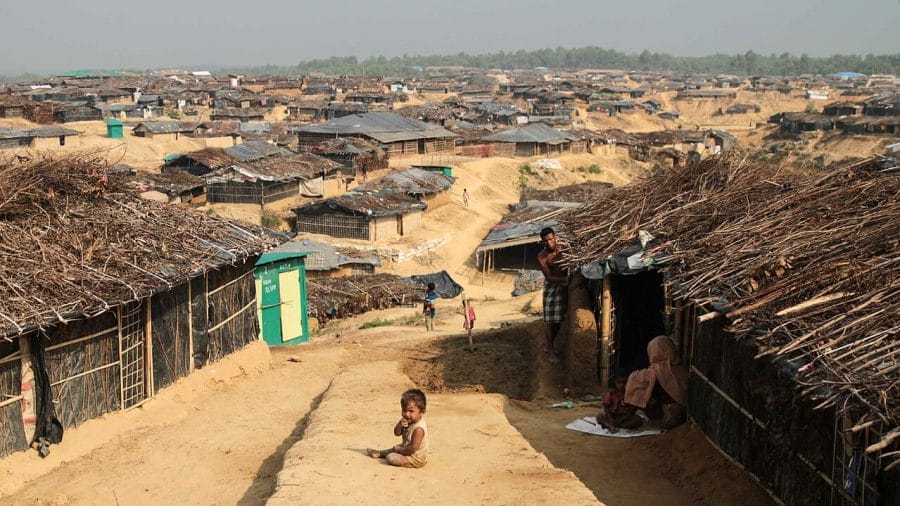
Photo of Kutupalong Refugee Camp in Bangladesh. Wikipedia Commons
The Palestinian situation is just the same, if not, even worse. They were evicted from their homes through non-stop eviction campaigns by the Israeli government ever since the formation of Israel which resulted in the Nakba of 1948. Their houses have constantly been bulldozed and their entire neighbourhoods have been demolished to make way for new Israeli settlements. The vast majority of Palestinians are now forced to live in pockets of "Bantustans" in the West Bank, in refugee camps within Israel and neighbouring states, and in the open air prison of Gaza.
Just like the Rohingya, the Palestinians cannot move freely within their own ancestral lands. Like the Rohingya, the Palestinians need to go through check points and pay hefty sums to the authorities to be able to simply go from one village/township to another. The Rohingya can never get official jobs or work without fear of their land and produce getting confiscated overnight; the Palestinians live through the same. The Rohingya are not allowed to vote or run for office in federal elections, the Palestinians in Israel are the same. The Rohingya are discriminated in Burmese schools and educational institutions, just like Palestinian children are treated inferior in Israeli education systems. The Rohingya are constantly abducted, detained, and imprisoned without trial; the Palestinians have an unparalleled record of unlawful detentions in Israeli prisons. In essence, just like the Rohingya live under severe discrimination in Myanmar, the Palestinians live in apartheid under systemic discrimination and oppression from Israeli authorities.
Like the Rohingya, the Palestinians are looked down upon and denigrated by the Israelis as objects of extreme hate. Throughout social media, Israeli citizens are often heard saying out loud in public "we will kill you all", "we will bomb all hospitals, all the tunnels, everything", "Gaza nakba 2023" . Similarly, prior to the Rohingya massacre of 2017, hate speech on social media was widespread with statements such as "kill them all so that they can meet Allah faster", or "stuff pig into their mouths and throw them into the river". At the government level, Israeli Ministers have referred to Palestinians as "snakes", "beasts on two legs" and "human animals", just like the Rohingyas were referred to as "insects" and "half humans" by government officials and the clergy. Scholars of genocide stress that hate speech and dehumanization of a population are integral to any genocide, an international and organized process of physical destruction of any identity-based population or human group. There is no doubt that the Israeli regime, from its "moderate" president to Far-Right prime minister and cabinet ministers, as well as the society at large, have openly and crudely expressed vile and hate-filled speech towards the Palestinians, just as Myanmar's flagship political party of Aung San Suu Kyi, state officials, and the military, as well as multi-ethnic civil society had towards the Rohingya while committing genocide.
However revolting the Hamas acts of violence against the Southern settler communities might have been, a just military retaliation can never include the indiscriminate bombing of refugee camps. Genocide is no "self-defence": Period. For an armed force as sophisticated as the IDF, there is no reason why they should ever resort to the bombing of a civilian population, starving them for weeks, and destroying their healthcare facilities where the crippled and elderly are housed. The only reason is their sheer intent to eliminate the Palestinians as much as they can.
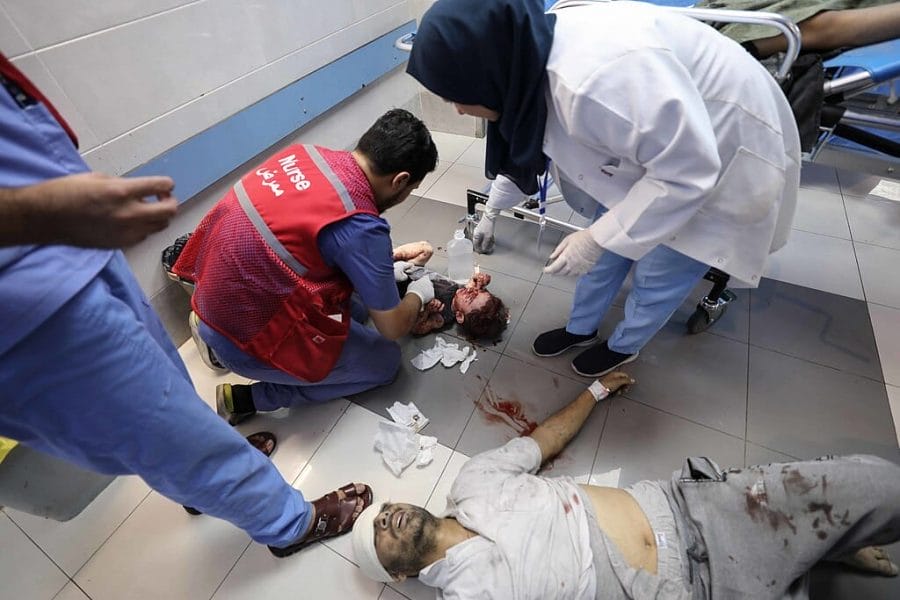
Wounded child and man wait for treatment at Al-Shifa Hospital in Gaza City following an Israeli airstrike on October 11, 2023. Wikimedia Commons
When I close my eyes and see Kulsum, Jannatara and Nurhashim playing in the alleys of Kutupalong refugee camps, I pray that they aren't bombed to death by some Burmese military artillery falling over their heads. Their only crime: they were born Rohingya and are therefore considered less human by the ruling regime. And I hope my prayers are answered. But for Alaa, Momen, Hazem, Yousef, Yazan and dozens of other children in Jabalia refugee camp, that prayer cannot be made. They are already bombed to death, along with approximately 6000 other innocent children, who were clearly considered less human by the Israeli government and its allies.
Raïss Tinmaung

Raïss Tinmaung
Raïss Tinmaung is the country coordinator for Canada at Free Rohingya Coalition.



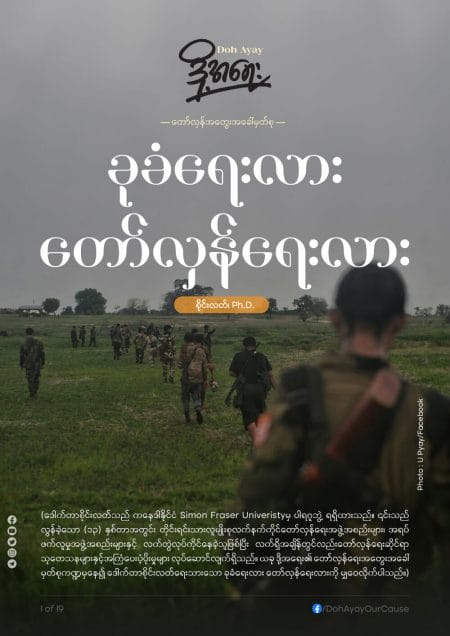

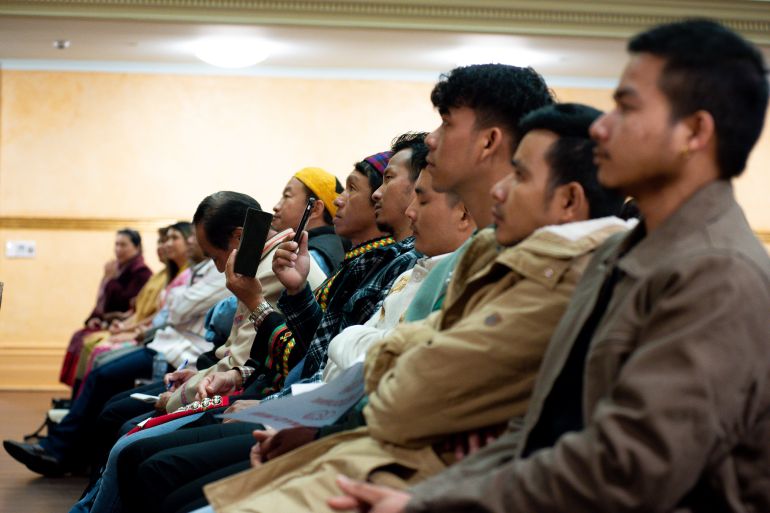
 The Australia trip of NUG Minister for Human Rights Aung Myo Min was planned to shore up support among the Myanmar community there and build momentum for recognition [Ali MC/Al Jazeera]
The Australia trip of NUG Minister for Human Rights Aung Myo Min was planned to shore up support among the Myanmar community there and build momentum for recognition [Ali MC/Al Jazeera]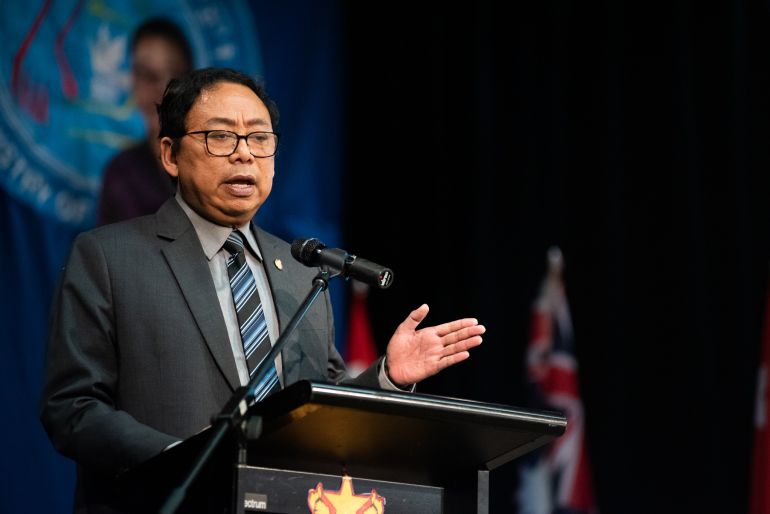 NUG Minister for Human Rights Aung Myo Min speaks to the Myanmar diaspora in Melbourne amid concerns about its engagement with ethnic minorities [Ali MC/Al Jazeera]
NUG Minister for Human Rights Aung Myo Min speaks to the Myanmar diaspora in Melbourne amid concerns about its engagement with ethnic minorities [Ali MC/Al Jazeera]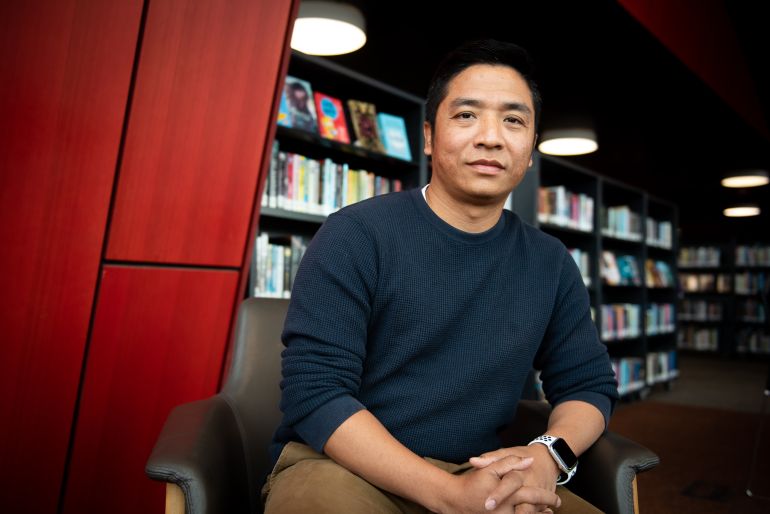 Rual Thang, who is originally from Chin state, says the NUG and ethnic groups need to improve coordination to overthrow the military regime [Ali MC/Al Jazeera]
Rual Thang, who is originally from Chin state, says the NUG and ethnic groups need to improve coordination to overthrow the military regime [Ali MC/Al Jazeera] Habiburahman, a Rohingya in exile, says he wonders whether the NUG is sincere in its intentions [Ali MC/Al Jazeera]
Habiburahman, a Rohingya in exile, says he wonders whether the NUG is sincere in its intentions [Ali MC/Al Jazeera]
